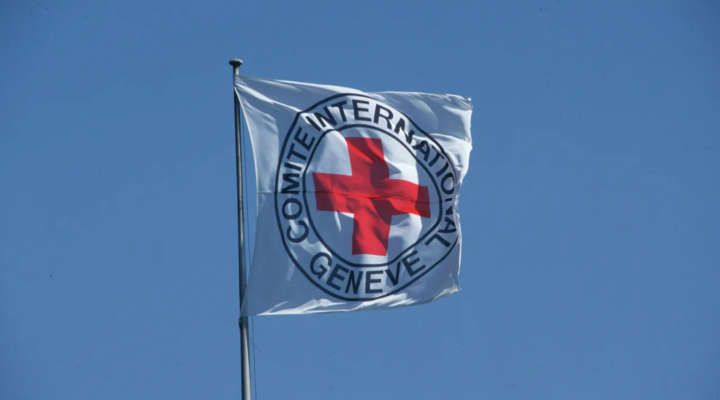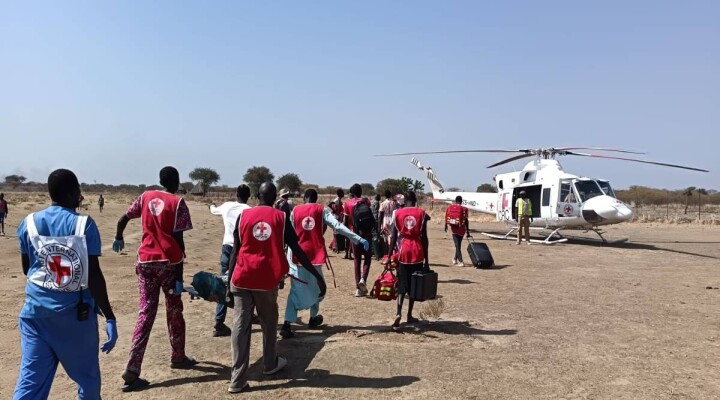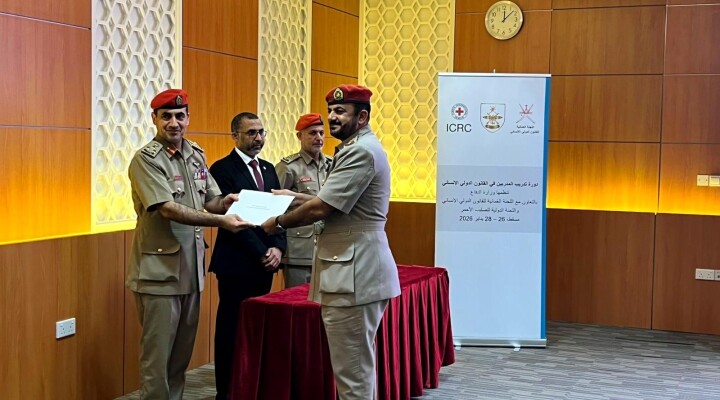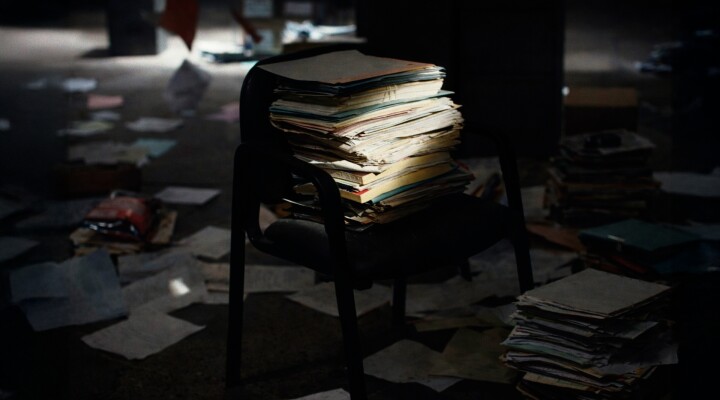ICRC President in Syria: “This is a huge task ahead of us”
As the President of the International Committee of the Red Cross (ICRC), Mirjana Spoljaric, concluded her three-day visit to Syria, she emphasised that respect for international humanitarian law (IHL) and providing answers for families of the missing are crucial in fostering reconciliation and long-term stability.
“There are potentially tens of thousands of missing people that we have not yet identified, but we are already following up on over 40,000 cases,” stated ICRC President Spoljaric. “This is a huge task ahead of us. And it’s another proof of why compliance with the Geneva Conventions, and why the fundamental rights enshrined in international humanitarian law have to be protected at all times.”
During her visit, President Spoljaric met with Mr. Mohamad al-Basheer, Caretaker Prime Minister of the new Syrian administration; Mr. Hazem Bakleh, President of the Syrian Arab Red Crescent Society (SARC); Mr. Saa’d Naassan, Head of Political Affairs Office in Aleppo; and members of the Association of Detainees and Missing Persons of Sednaya Prison.
“Thousands of families are looking for their relatives. This is an agony that no one wants to go through. We are working with our partners to be able to inform them as quickly as possible. But it's been years since the ICRC has had access to all detainees and we see the consequences of it. It proves why it is important that the ICRC has access to detention in times of conflict and after the conflict, so that we can record the names of the people and after identifying them, we can notify the families. If this had been done in the past, we wouldn't see all these families now looking for their loved ones.”
President Spoljaric visited Aleppo and Idlib, two cities facing overwhelming humanitarian needs. In Aleppo, she saw ICRC efforts to support essential services like water supply and healthcare, both of which have been heavily impacted by years of conflict. She also called all parties to do their utmost to protect critical infrastructure located in areas of ongoing hostilities along the Euphrates River, as millions of people depend on them for drinkable water and power supply. “If anything happens to the power or the water supply coming from these two plants, it can potentially affect millions of people. So I'm calling on all the parties and everybody who has an influence to protect the sites, to protect, at all times, critical infrastructure, especially in the health sector, in the water sector, and in the energy sector,” said ICRC President Spoljaric.
The ICRC has worked in Syria since 1967 to support people affected by armed conflict. Today, ICRC has over 700 staff working throughout Syria with offices in Damascus, Aleppo, Deir Ezzor, Hassakeh and Homs governorates, delivering humanitarian assistance to meet the needs of civilians affected by hostilities and violence.
Length: 08:25
Location: Syria, Aleppo – Idlib.
Date Of Filming: 5&6 January 2025.
Copyright: ICRC access all
On Screen Credit: ICRC written or logo attached to story.
Format: H264 HD
Videographer: Sana Tarabishi, Jackob Jacob, Stephen Ryan.
Editor: Ammar Saboh
00:00 – 00:41 ICRC cars on the road to/in Mashed Rohin camp in Idlib.
00:41 - 01:47 ICRC president in Mashed Rohin camp in Idlib.
01:47 – 01:51 ICRC president visiting a collective bakery supported by the Turkish Red
01:51 – 2:00 ICRC president visiting a family in Mashed Rohin camp.
02:21 - 03:44 SOUNDBITE: President of the International Committee of the Red Cross (ICRC), Mirjana Spoljaric (in English):
“There are potentially tens of thousands of missing people that we have not yet identified, but we are already following up on over 40,000 cases. This is a huge task ahead of us. And it’s another proof of why compliance with the Geneva Conventions, and why the fundamental rights enshrined in international humanitarian law have to be protected at all times. We need to learn the lessons from the past as quickly as possible, not to repeat them in the future – to ensure the people of Syria have a bright future ahead. I am aware that thousands of families are looking for their relatives. This is an agony that no one wants to go through. We are working with our partners to be able to inform them as quickly as possible. But it's been years since the ICRC has had access to all detainees and we see the consequences of it. And it proves why it is important that the ICRC has access to detention in times of conflict and after the conflict, so that we can record the names of the people after identifying them, and so that we can notify the families. If this had been done in the past, we wouldn't see all these families now looking for their loved ones.
03:44 – 05:05 ICRC president visiting Aleppo University hospital.
05:05 – 05:31 ICRC president Mirjana Spoljaric and ICRC Syria head of delegation, Stephan Sakalian and representatives from the association of detainees and missing persons of Sednaya prison
05:31 – 05:49 ICRC convoy on the way to Ayn Al Bayda water station.
05:49 – 08:01 ICRC president in Ayn Al Bayda water station.
08:01 - 08:25 SOUNDBITE: President of the International Committee of the Red Cross (ICRC), Mirjana Spoljaric (in English):
“If anything happens to the power or the water supply coming from these two plants, it can potentially affect millions of people. So I'm calling on all the parties and everybody who has an influence to protect the sites, to protect, at all times, critical infrastructure, especially in the health sector, in the water sector, and in the energy sector.”
Ends
PHOTO CAPTIONS
ICRC President with Syrian Arab Red Crescent and Kizilay and displaced families
Photo Credit: Türk Kızılay
Date: 6.1.2025
Location: Idlib IDP camp
Download this footage from ICRC Video Newsroom
For further information, please contact:
Suhair Zakkout, ICRC Beirut, +963 930 336 718, szakkout@icrc.org
Stephen Ryan, ICRC Geneva, +41 79 392 14 10, sryan@icrc.org



